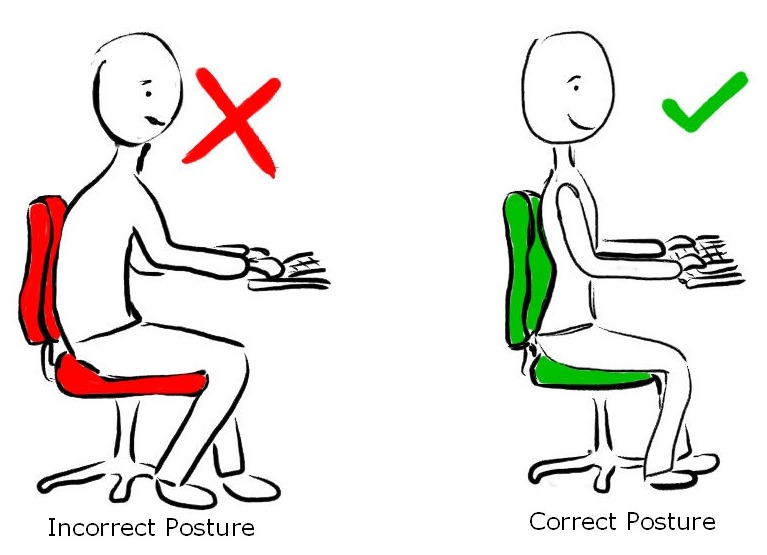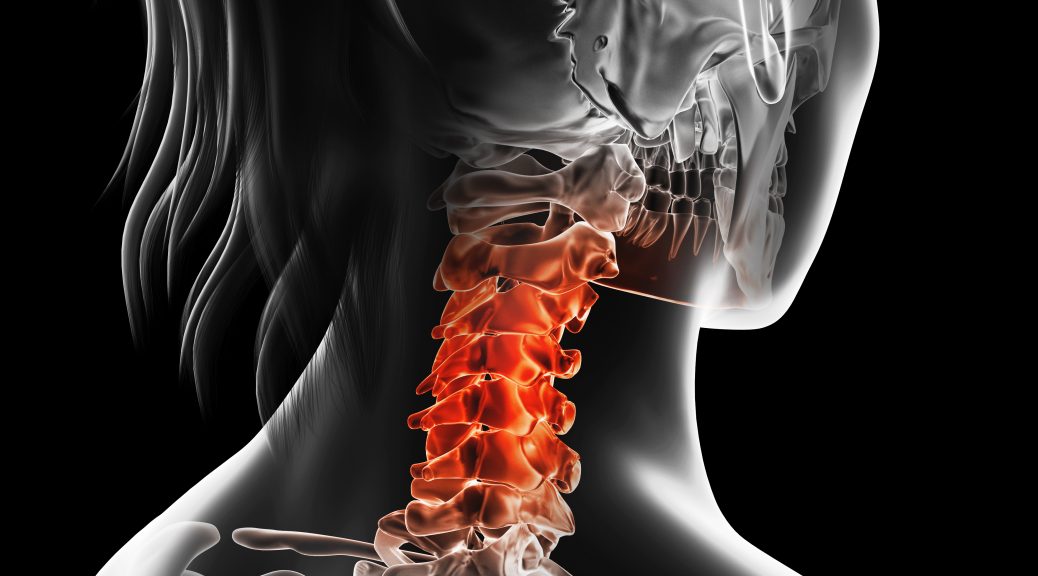IS POOR POSTURE THE CAUSE OF YOUR PAIN?
Did you know that current research suggests 80% individuals will experience back pain at some time in their lives? There are several causes that can lead to back pain-degenerative changes, herniated discs, poor posture, pulled/torn muscle /ligament around the spine, kidney stones or many other pathological causes. Of all these various causes, there is one thing that can be controlled and taken care of by you-POSTURE!
WHAT EXACTLY IS A POOR POSTURE?
Any position that places our spine in unnatural curves (most often a C shape) instead of the normal S shape curve is a poor posture (see picture below). S shaped curve allows for equal weight distribution as well as flexibility of the spine. Poor posture is known to affect not just the spine but also the surrounding ligaments and muscles. Prolonged poor postures lead to a lot of pressure on these surrounding tissues thus increasing the damage and pain.

Good-Posture-vs-Poor-Posture
FACTORS CONTRIBUTING TO POOR POSTURE:
Improper workstation design :
Could be a wrong chair, monitor height or distance of yourself and the monitor. Lack of enough breaks specially in a desk job also contribute to poor posture in the long run.
Repetitive movements/postures as a part of work/occupation:
Bending repeatedly and working.
Lifestyle:
Current technology has made people to bend down and look into their electronic devices for several hours every day. High heels, sitting with the wallet in the back pocket and heavy bags/purses also lead to malalignment of the spine.
Muscle imbalance:
Due to certain sports that we play or our basic posture leading to weakness in some groups and tightness in others thus affecting the curve.
Poor core stability and strength
Age:
As age advances, it leads to lesser flexibility and strength. If we keep thinking that doing exercises will cause more discomfort than what we currently have, the muscles become weaker and weaker and without enough muscle strength, the spine cannot stand erect
Habit:
The habit of poor posture is very difficult to change like sitting slouched on a couch for several hours or just slouch sitting or standing in day to day activities. Sure, everyone loves to sit in a relaxed position but, if you do not make the effort of trying to change it, it will keep creating more and more problems for the body.
EFFECTS OF BAD POSTURE:
Since childhood we have been asked to sit straight or stand tall and not slouch. Mostly everyone did that as a compulsion and rather grudgingly. However, it has many important reasons instead of it just being better for our appearance!
Back pain:
That is the most obvious one! Poor posture leads to stretching of the muscles of the back and the surrounding structures thus making them weak which in turn reduces the support it gives to the spine – taking us back to poor posture! As it becomes more of a chronic habit, you then have to take care of your posture and make your muscles stronger as well.
Neck pain, headaches and jaw pain:
Sometimes when there is no trauma or injury to your jaw and it starts clicking, popping, paining or going into spasm. There is a possibility it might be coming due to malalignment of the neck. A forward head posture has been known to cause jaw pain and headaches.
Hip, knee and foot pain:
Yes, the body is a closely connected structure. Any malalignment or change at one point like the foot or knee does affect the spine and leads to pain and vice versa.
Gastrointestinal system problems:
A slouched position/poor posture may compress the internal organs of the abdomen. It also affects the movement of the intestines thus leading to numerous gastrointestinal troubles like acid reflux or constipation. Over time it can also affect the metabolism and the way food is processed in the body.
Psychosocial impact:
In general, a person with a good upright posture seems more approachable and confident compared to the one who is slouching. This in turn leads to less motivation or mood issues in social situations. It has also been known to cause more fatigue and sleep problems as the body has to work harder and spend more energy to maintain itself when it is clearly not aligned well.
WHAT CAN YOU DO TO FIX A BAD POSTURE?
- Avoid prolonged sustained positions. Make sure you take frequent breaks, if possible, try getting up from your chair after every 30-45 minutes .
- Get into the habit of sitting well- always sit with your buttocks touching the back of the chair. This, in turn, will promote an erect posture and your back will get enough support
- While you are standing try to distribute your weight evenly on both legs and do not lean on one side.
- Use a backpack instead of a one sided bag if it is heavy so there is equal weight distribution on the shoulders. While sitting remove the wallet from the back pocket
- Do a chin tuck- if you have a poking chin and rounded shoulders, straighten your upper back and do a chin tuck and repeat it 10 times. You should also stretch your chest muscles if you have rounded shoulders
- If you have to use the phone for a long time, try holding it with your hand. You can also use a hands-free device instead of cradling it with your shoulder
HOW DOES PHYSIOTHERAPY HELP TO SOLVE POSTURE RELATED PROBLEMS?
Physiotherapists can help you by assessing exactly where your problem begins and then helping you to understand and modify habits that lead to bad posture. There are also various other treatments like manual therapy, taping and exercises that are aimed at stretching the tight muscles and strengthening the weaker muscles around the spine. They can also advice you regarding your work station modifications, if required.
PhysioNow
If you or anyone you know has posture related aches and pains or wants to get an assessment done to find out more about how you can improve your posture, call us today for an appointment!


